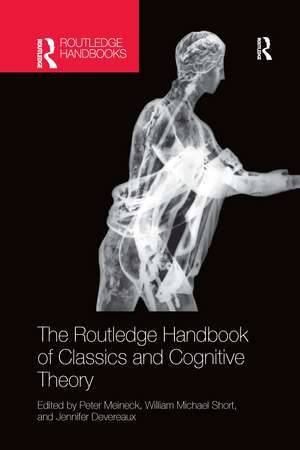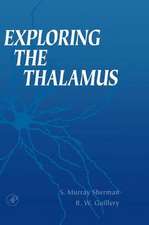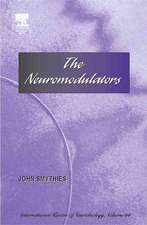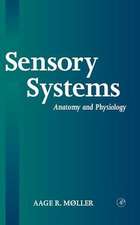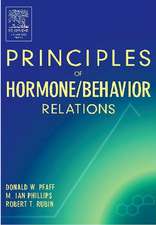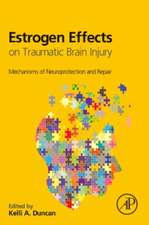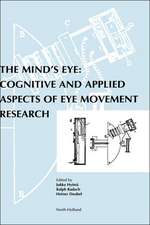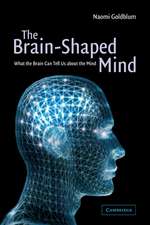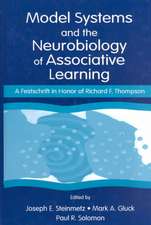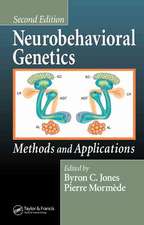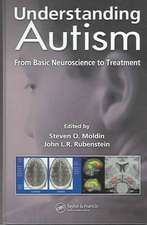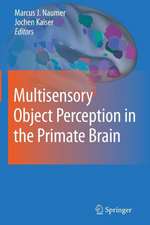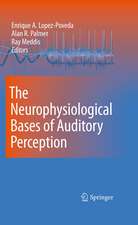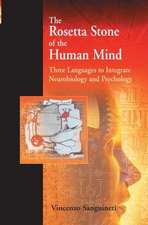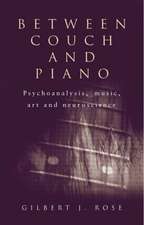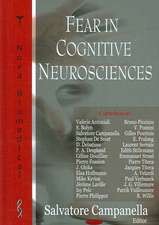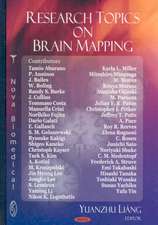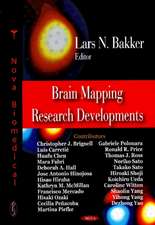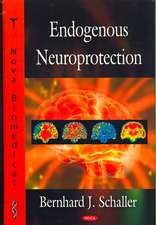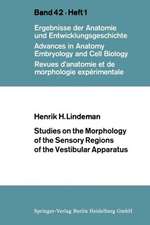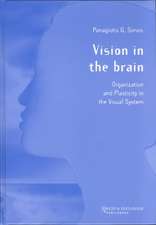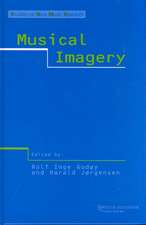The Routledge Handbook of Classics and Cognitive Theory: Routledge Handbooks of Classics and Theory
Editat de Peter Meineck, William Michael Short, Jennifer Devereauxen Limba Engleză Paperback – 18 dec 2020
Topics covered in this wide-ranging collection include: cognitive linguistics applied to Homeric and early Greek texts, Roman cultural semantics, linguistic embodiment in Latin literature, group identities in Greek lyric, cognitive dissonance in historiography, kinesthetic empathy in Sappho, artificial intelligence in Hesiod and Greek drama, the enactivism of Roman statues and memory and art in the Roman Empire.
This ground-breaking work is the first to organize the field, allowing both scholars and students access to the methodologies, bibliographies and techniques of the cognitive sciences and how they have been applied to classics.
| Toate formatele și edițiile | Preț | Express |
|---|---|---|
| Paperback (1) | 430.09 lei 6-8 săpt. | |
| Taylor & Francis – 18 dec 2020 | 430.09 lei 6-8 săpt. | |
| Hardback (1) | 1218.68 lei 6-8 săpt. | |
| Taylor & Francis – 19 dec 2018 | 1218.68 lei 6-8 săpt. |
Preț: 430.09 lei
Nou
Puncte Express: 645
Preț estimativ în valută:
82.30€ • 88.00$ • 68.62£
82.30€ • 88.00$ • 68.62£
Carte tipărită la comandă
Livrare economică 17 aprilie-01 mai
Preluare comenzi: 021 569.72.76
Specificații
ISBN-13: 9780367732455
ISBN-10: 0367732459
Pagini: 432
Dimensiuni: 174 x 246 x 30 mm
Greutate: 0.78 kg
Ediția:1
Editura: Taylor & Francis
Colecția Routledge
Seria Routledge Handbooks of Classics and Theory
Locul publicării:Oxford, United Kingdom
ISBN-10: 0367732459
Pagini: 432
Dimensiuni: 174 x 246 x 30 mm
Greutate: 0.78 kg
Ediția:1
Editura: Taylor & Francis
Colecția Routledge
Seria Routledge Handbooks of Classics and Theory
Locul publicării:Oxford, United Kingdom
Cuprins
Acknowledgements; Foreword, David Konstan; List of Contributors; Introduction, Peter Meineck, William Michael Short & Jennifer J. Devereaux; Part One: Cognitive Linguistics; 1. Cognitive-Functional Grammar and the Complexity of Early Greek Epic Diction, Ahuvia Kahane; 2. The Cognitive Linguistics of Homeric Surprise, Alexander S. W. Forte; 3. Construal and Immersion, a Cognitive Linguistic Approach to Homeric Immersivity, Rutger J. Allen; 4. Roman Cultural Semantics, William Michael Short; 5. Psycholinguistics and the Classical Languages, Alessandro Vatri; Part Two: Cognitive Literary Theory; 6. The Cognition of Deception: Falsehoods in Homer’s Odyssey and their Audiences, Elizabeth Minchin; 7. The Forbidden Fruit of Compression in Homer, Anna Bonifazi; 8. Human Cognition and Narrative Closure: The Odyssey’s Open-End, Joel Christensen; 9. “I’ll imitate Helen”! Troubling Text-worlds and Schemas in Aristophanes’ Thesmophoriazusae, Antonis Tsakmakis; 10. The Body-as-Metaphor in Latin Literature, Jennifer J. Devereaux; Part Three: Social Cognition; 11. Group Identity and Archaic Lyric: We-Group and Out-Group in Alcaeus 129, Jessica Romney; 12. Plato’s Dialogically Extended Cognition: Cognitive Transformation as Elenctic Catharsis, Laura Candiotto; 13. Cognitive Dissonance, Defeat, and the Divinization of Demetrius Poliorcetes in Early Hellenistic Athens, Thomas R. Martin; 14. Irony in Theory and Practice. The Test Case of Cicero’s Philippics, Luca Grillo; 15. Roman Ritual Orthopraxy and Overimitation, Jacob L. Mackey; 16. Theory of Mind from Athens to Augustine: Divine Omniscience and the Fear of God, Paul C. Dilley; Part Four: Performance and Cognition; 17. Sappho’s Kinesthetic Turn: Agency and Embodiment in Archaic Greek Poetry, Sarah Olsen; 18. What Do We Actually See On Stage? A Cognitive Approach to the Interactions Between Visual and Aural Effects in the Performance of Greek Tragedy, Anne-Sophie Noel; 19. Mirth and Creative Cognition in the Spectating of Aristophanic Comedy, Angeliki Varakis-Martin; Part Five: Artificial Intelligence; 20. The Extended Mind of Hephaestus: Automata and Artificial Intelligence in Early Greek Hexameter, Amy Lather; 21. Staging Artificial Intelligence: The Case of Greek Drama, Maria Gerolemou; Part Six: Cognitive Archaeology; 22. Thinking with Statues: The Roman Public Portrait and the Cognition of Commemoration, Diana Y. Ng; 23. Animal Sacrifices in Roman Asia Minor and its Depictions: A Cognitive Approach, Günter Schörner; 24. Art, Architecture, and False Memory in the Roman Empire: A Cognitive Perspective, Maggie L. Popkin; Index
Notă biografică
Peter Meineck holds the endowed chair of Professor of Classics in the Modern World at New York University, USA. He is also an Honorary Professor of Classics at the University of Nottingham, UK and the Founding Director of Aquila Theatre. His most recent publications include Theatrocracy: Greek Drama, Cognition and the Imperative for Theatre (Routledge, 2017), Combat Trauma and the Ancient Greeks (ed. with David Konstan, 2014) and a new translation of Aristophanes’ Frogs (forthcoming). He is also Rescue Captain of the Bedford Fire Department in New York.
William Michael Short joined the Department of Classics and Ancient History at the University of Exeter, UK in 2017, after holding positions at the University of Texas at San Antonio and Loyola University, Maryland, both in the USA. He has edited or co-edited several volumes of papers including Con i Romani: Studi antropologici del mondo antico (2014, in Italian), Embodiment in Latin Semantics (2016) and Toward a Cognitive Classical Linguistics (forthcoming).
Jennifer Devereaux is an advanced PhD candidate in Classics at the University of Southern California, USA. She is a member of the Computational Social Sciences Laboratory at USC’s Brain and Creativity Institute and is currently a visiting postgraduate researcher at the University of Edinburgh, UK, in the Department of History, Classics and Archaeology. She has written a number of chapters on the topics of embodied cognition, historiography and rhetoric.
William Michael Short joined the Department of Classics and Ancient History at the University of Exeter, UK in 2017, after holding positions at the University of Texas at San Antonio and Loyola University, Maryland, both in the USA. He has edited or co-edited several volumes of papers including Con i Romani: Studi antropologici del mondo antico (2014, in Italian), Embodiment in Latin Semantics (2016) and Toward a Cognitive Classical Linguistics (forthcoming).
Jennifer Devereaux is an advanced PhD candidate in Classics at the University of Southern California, USA. She is a member of the Computational Social Sciences Laboratory at USC’s Brain and Creativity Institute and is currently a visiting postgraduate researcher at the University of Edinburgh, UK, in the Department of History, Classics and Archaeology. She has written a number of chapters on the topics of embodied cognition, historiography and rhetoric.
Recenzii
"This is the first book to demonstrate how cognitive theory can be productively applied across a wide range of Classical studies, including linguistics, literary theory, history, art history, religion, theater, and archaeology. The contributors draw on both longstanding cognitivist approaches and the 'second wave' of embodied, enactive and distributed cognition. Enriched by a wealth of interdisciplinary bibliography, the volume shows how study of the interaction between the mind-brain and its environment can shed new light on the cultures of Western antiquity."
Jennifer Larson, Kent State University, USA
Jennifer Larson, Kent State University, USA
Descriere
The Routledge Handbook of Classics and Cognitive Theory is an interdisciplinary volume that examines the application of cognitive theory to the study of the classical world, across several interrelated areas including linguistics, literary theory, social practices, performance, artificial intelligence and archaeology.
